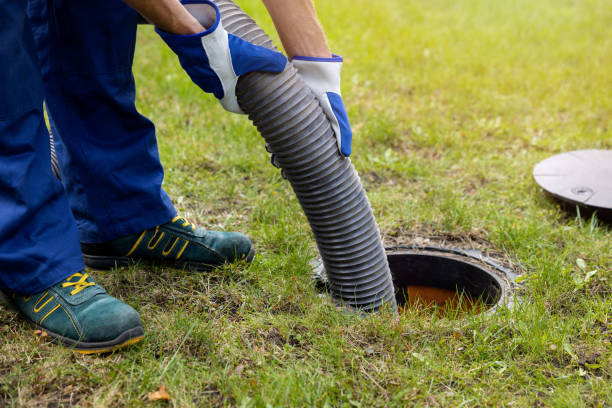Septic systems are the heart of residential wastewater management. They sit hidden underground, working silently and constantly to ensure people’s homes remain safe and clean. In many cases, though, being out of sight means they’re out of mind. Most people give little thought to their septic systems until they malfunction. Once a smelly puddle appears in their yard or wastewater begins backing up into their homes, they quickly remember what was forgotten for so long.
Maintaining a septic system is essential for preventing backups, offensive odors, environmental contamination, and many other problems. It’s one of the keys to keeping your plumbing system working effectively. Keep the following maintenance tips in mind to ensure your septic system always serves you well.

Regular Pumping
Be sure to take full advantage of the professional septic pumping services available in your area. This is one of the most important aspects of septic system maintenance. It prevents an excess of solids from accumulating in the tank to reduce the risk of serious issues. How often your septic tank needs to be pumped depends on several factors, like the size of your household, typical water usage, and the size of the tank. In general, septic tank pumping every three to five years is recommended.
Also Read : What to Do if Your Office Has a Major Plumbing Problem
Be Mindful of What Goes Into the System
Be careful of what goes down your drains and into the septic tank as well. Avoid flushing non-biodegradable items, such as wet wipes, hygiene products, grease, and chemicals. All these items can clog the system. They may also disrupt the natural balance of bacteria that are responsible for breaking down solids in the septic tank. They could cause damage to your plumbing system as well. Keep those items out of your drains to help keep your plumbing and septic systems working properly.
Septic Tank and Drain Field Upkeep
In a septic system, the tank is where wastewater is stored after it leaves your home. The drain field is where it’s processed before eventually being sent back into the general water supply. Don’t park vehicles, build structures, or plant bushes over the tank and drain field. Doing so can cause extensive damage, which may hamper the natural water treatment process.
Regular Inspections
Scheduling regular septic system inspections is also a crucial part of the maintenance process. Those inspections allow professionals to evaluate the condition of the system, check for leaks and damage, and ensure all the components of the system are working properly. They also help to ensure problems are caught early on before they have a chance to spread. Inspections should be carried out at least once every three years.
Address Problems Quickly
If trouble with your septic system arises, have it repaired as quickly as possible. Common signs of problems include slow drains, gurgling pipes, and foul odors. Unexplained puddles in your yard in the vicinity of the septic tank could indicate serious issues as well. Ignoring problems like those could lead to more extensive problems and expensive repairs. Therefore, it would be wise to look around online for professionals offering affordable septic pumping services to get the issue sorted as soon as you notice it.
Keeping Your Septic System in Optimal Condition
Septic systems usually do their jobs effectively, so you don’t have to constantly keep them at the forefront of your mind. They shouldn’t be completely ignored, though. Maintenance is essential for keeping them working properly. Have them pumped and inspected regularly. Don’t send non-biodegradable items down the drains, and protect the tank and drain field. Address problems as soon as they arise to keep them from growing worse. Don’t hesitate to seek professional intervention to ensure your septic system remains in optimal condition.
Hey welcome to my blog . I am a modern women who love to share any tips on lifestyle, health, travel. Hope you join me in this journey!

Speak Your Mind